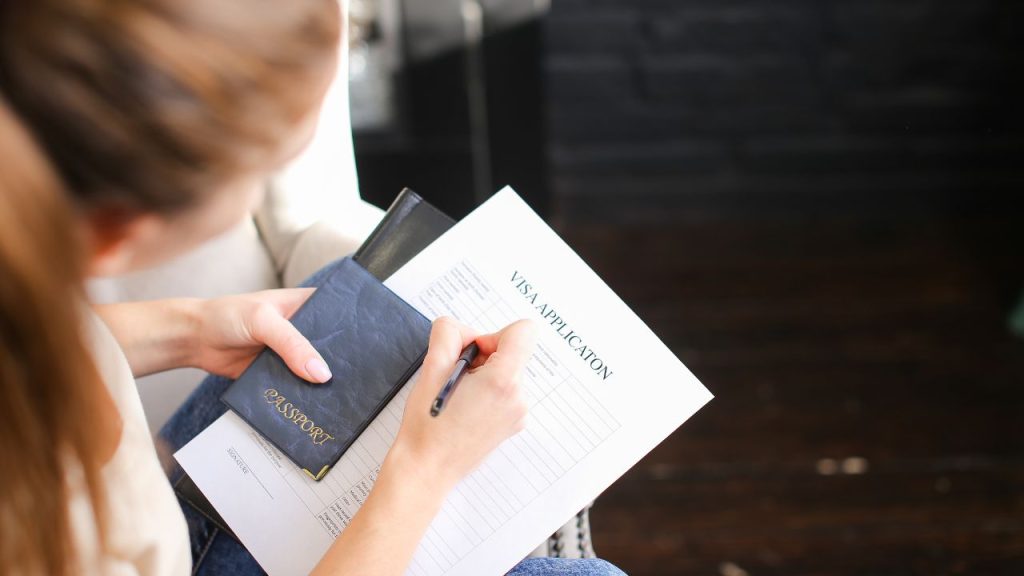Relocating to a new country is both exciting and daunting.
It can be an exhilarating experience, filled with the promise of meeting fresh faces and discovering unfamiliar places.
But it will also come with its fair share of questions – from what Visa do I need to where should I shop for groceries?
No matter how well you have arranged your move abroad, there will be disruptions as you set up your new home.
Here, we look at some essential steps to help you settle in quickly and happily, from documentation requirements to neighborhood explorations!
1. International Moving Logistics and Planning

When planning your move abroad, start by researching your destination thoroughly. Understand the local customs, laws, and regulations.
Next, hire a reliable international moving company to guide you through packing, shipping, and unpacking.
Whether you need baggage shipping to New Zealand, Australia, Paris, or anywhere else, the right international moving company can ensure your belongings are safe and sound.
Read customer reviews and get quotes before selecting the moving company that best suits your needs.
2. Choosing the Perfect Destination

Your choice of destination is a critical decision that can substantially affect your overall experience abroad. Several factors need to be taken into consideration.
Understand the cost of living, job opportunities, language, and social norms of the new place. Visit the location beforehand to familiarize yourself with the environment.
Check out potential housing options, the local transportation system, and recreational facilities. Remember to consider climate conditions and how they might impact your lifestyle.
Finally, think about your long-term plans. Is the location suitable for establishing a long-term home, or is it more of a temporary pit stop?
Gather as much information as you can to make an informed decision.
3. Securing the Right Housing Abroad

Finding the right place to call home in a new country is one of the most critical steps in your relocation process. Begin with an understanding of the rental market of your new location.
Research the various neighborhoods, their safety levels, proximity to work or school, availability of public transportation, and facilities such as supermarkets, parks, and hospitals.
Online platforms and local real estate agents can provide valuable insights into current market trends and prices.
Consider renting a place temporarily before committing to a long-term lease.
This will allow you to experience the neighborhood and determine if it aligns well with your lifestyle and preferences.
When you’ve found a potential home, pay close attention to the lease agreement.
Ensure you understand the terms and conditions, the duration of the lease, payment terms, and any other obligations or restrictions.
Have a lawyer or someone familiar with local laws review the agreement.
READ MORE: Moving Into a New House? Here’s Everything You Need to Know
4. Preparing for Cultural and Lifestyle Differences

Adapting to a new culture and lifestyle is a significant aspect of moving abroad and entails understanding and respecting the local customs, traditions, and social norms.
Start by studying the local language, as it not only aids communication but also enables a more profound understanding of the culture.
Familiarize yourself with traditional local cuisines, festivals, and holidays to better appreciate and participate in the local culture.
Lifestyle differences could also involve everyday routines, work-life balance, or even the pace of life.
For example, some cultures value work-life balance and have shorter work hours or longer vacations, while others may have a faster-paced lifestyle.
Being open-minded and patient will aid in this transition. Remember that it’s okay to experience culture shock or homesickness.
Reach out to local communities or expatriate groups for support during this time. They can provide valuable advice, companionship, and an understanding ear.
5. Legal Requirements and Documentation

Navigating the legal requirements and obtaining the necessary documentation is a critical step in your journey to setting up a new home abroad.
First and foremost, you’ll need to secure the appropriate visa or permit to live and possibly work in the new country.
The type of visa you need will depend on various factors, including the purpose of your move, the duration of your stay, and your nationality.
Delve into your chosen country’s immigration laws and regulations to understand what applies to your situation.
You may need proof of employment, financial stability, or health insurance coverage.
Also, consider the timeline for the visa application process, as some countries might take several months.
Keep your passport up-to-date, as most countries require that it be valid for at least six months beyond your planned stay.
Check if your new country requires an international driver’s license or if they accept your current one.
Get the necessary vaccinations and bring the international vaccination certificate, if required.
6. Managing Finances in a New Country

Handling finances in a new country can be complex due to differences in taxation systems, cost of living, and the transition of assets.
Start by understanding the local currency and the current exchange rate. This will help you budget your daily expenses and financial obligations accordingly.
As soon as you can, open a bank account in your hometown. This will make it easier to pay bills, receive payments, and avoid hefty fees for international transactions.
While selecting a bank, consider factors such as online banking facilities, ATM access, customer service, and the bank’s reputation.
Invest time in understanding the local tax laws and regulations. If you’re working, know how income tax is calculated and withheld.
Remember that some countries have tax treaties with others to avoid double taxation. If this isn’t the case, you might need to pay taxes in both your home and host country.
Plan your insurance needs based on the available healthcare facilities and your general health condition.
Some countries have mandatory health insurance policies for expatriates.
In conclusion, setting up a new home abroad is exciting but challenging.
Proper research and planning can ease the transition and ensure your relocation journey is successful.



